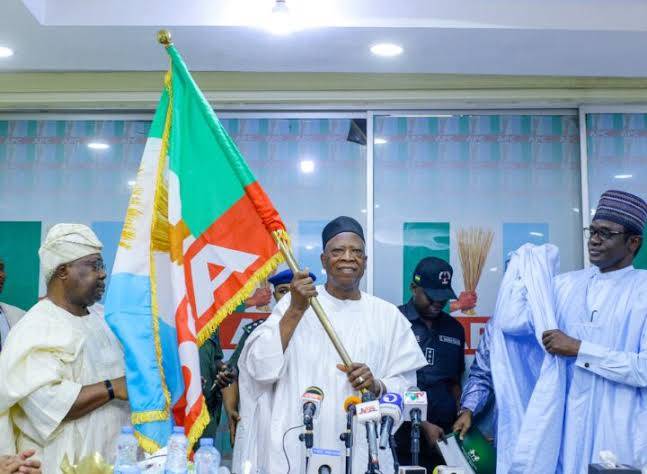PDP Governors Challenge President Tinubu's Suspension Of Rivers State Governor In Supreme Court
The Peoples Democratic Party (PDP) governors have taken a bold step in challenging President Bola Tinubu's suspension of Rivers State Governor, Siminalayi Fubara, in the Supreme Court. This move has reignited a crucial debate on Nigeria's federalism and the power dynamics between the federal government and state authorities.
At the heart of the matter is the six-month suspension imposed on Fubara, his deputy, Ngozi Odu, and the members of the Rivers State House of Assembly. The PDP governors contend that this suspension is unconstitutional and an undue exercise of federal power. They argue that the President's actions violate key sections of Nigeria's Constitution, including Sections 1(2), 5(2), and 305 of the 1999 Constitution (as amended).
The governors are seeking several orders from the Supreme Court, including:
- Nullification of the State of Emergency: They want the court to nullify the proclamation of a state of emergency in Rivers State, which they claim was wrongfully made by the President and approved by the National Assembly.
- *Injunction Against Implementation of the Suspension*: They seek an order restraining the President, his servants, agents, and privies from implementing the unlawful suspension of the governor and deputy governor of Rivers State.
- Protection of Constitutional and Statutory Duties: The governors are requesting the court to restrain the President from interfering with the execution of the constitutional and statutory duties of the governor and deputy governor, as well as their electoral mandate.
- Preventing Future Suspensions: The PDP governors also seek an order to restrain the President from attempting to suspend any other governor in Nigeria, particularly those not aligned with the ruling party.
The PDP governors' legal challenge is not just about the suspension of Governor Fubara, but also about the broader implications of the President's actions on Nigeria's federalism and the rule of law. They argue that the President's declaration of a state of emergency in Rivers State failed to meet the stipulated conditions and procedures for such a declaration. They also criticize the National Assembly for approving the state of emergency via a voice vote, which they argue was invalid.
The outcome of this case will have significant implications for Nigeria's democracy and the balance of power between the federal government and state authorities. Will the Supreme Court uphold the President's actions, or will they rule in favor of the PDP governors? Only time will tell.
In the meantime, this case serves as a reminder of the importance of checks and balances in a democratic system. It highlights the need for institutions to respect the rule of law and the Constitution, and for leaders to prioritize the interests of the people over partisan politics.
As Nigeria navigates this complex and contentious issue, it is essential for citizens to remain informed and engaged. The future of Nigeria's democracy depends on it.
The PDP governors' challenge to President Tinubu's actions is not just about the suspension of Governor Fubara, but also about the broader implications of the President's actions on Nigeria's federalism and the rule of law. The case has sparked a national debate on the limits of presidential power and the role of the judiciary in checking executive excesses.
The case has also highlighted the need for greater transparency and accountability in government. The PDP governors have argued that the President's actions were motivated by political considerations, rather than any genuine concern for the welfare of the people of Rivers State. They have also argued that the President's actions were taken without due process and in violation of the Constitution.
The case has also raised questions about the role of the National Assembly in checking executive excesses. The PDP governors have argued that the National Assembly failed to perform its constitutional duties by approving the state of emergency without proper debate or consideration.
As the case makes its way through the courts, Nigerians will be watching with bated breath to see how the judiciary will rule. Will the Supreme Court uphold the President's actions, or will they rule in favor of the PDP governors? Only time will tell.
In the meantime, the case serves as a reminder of the importance of an independent judiciary in a democratic system. The judiciary must be free to rule on the merits of the case, without fear or favor. Anything less would undermine the rule of law and the integrity of the democratic process.
The PDP governors' challenge to President Tinubu's actions is a bold move that has sparked a national debate on the limits of presidential power and the role of the judiciary in checking executive excesses. As the case makes its way through the courts, Nigerians will be watching with bated breath to see how the judiciary will rule.
The outcome of this case will have significant implications for Nigeria's democracy and the balance of power between the federal government and state authorities. It will also have implications for the rule of law and the integrity of the democratic process.


